The Icelandic Sheepdog: A Quirky Adventure Buddy Full of Nordic Charm!
 Introduction and Breed Background
Introduction and Breed Background
Welcome to the captivating world of the Icelandic Sheepdog, a breed as enchanting as the land from which it hails! Picture yourself surrounded by breathtaking landscapes of glaciers, volcanoes, and vast meadows, accompanied by a furry, friendly companion eager to explore it all with you. The Icelandic Sheepdog, also known as "Icelandic Spitz," is more than just a delightful ball of fluff; it's a canine wonder that has been an integral part of Icelandic culture for centuries.
Considerations Before Choosing This Breed:
Before embarking on a journey with an Icelandic Sheepdog, there are a few factors to consider. First, these lively dogs thrive in active environments and are well-suited for families who love outdoor activities and playtime. They crave human interaction, so be prepared to spend quality time with them. Additionally, their thick double coat requires regular grooming to keep it healthy and tangle-free. If you're looking for a loyal and loving companion who enjoys both play and cuddles, the Icelandic Sheepdog might just be your perfect match!
Interesting and Fun Facts:
Did you know that the Icelandic Sheepdog is one of the oldest dog breeds in the world? It's true! These delightful dogs have been around since the time of the Vikings, and their unique heritage is still evident in their charming personalities today. In Iceland, they are known as "Icelandic Spitz" due to their fox-like appearance and sharp ears. Another fun fact is that they are natural herders and have been trusted to guard and guide sheep for centuries. So, if you ever plan on going on a sheep-herding adventure, the Icelandic Sheepdog will be your loyal partner in crime!
Breed Background and History
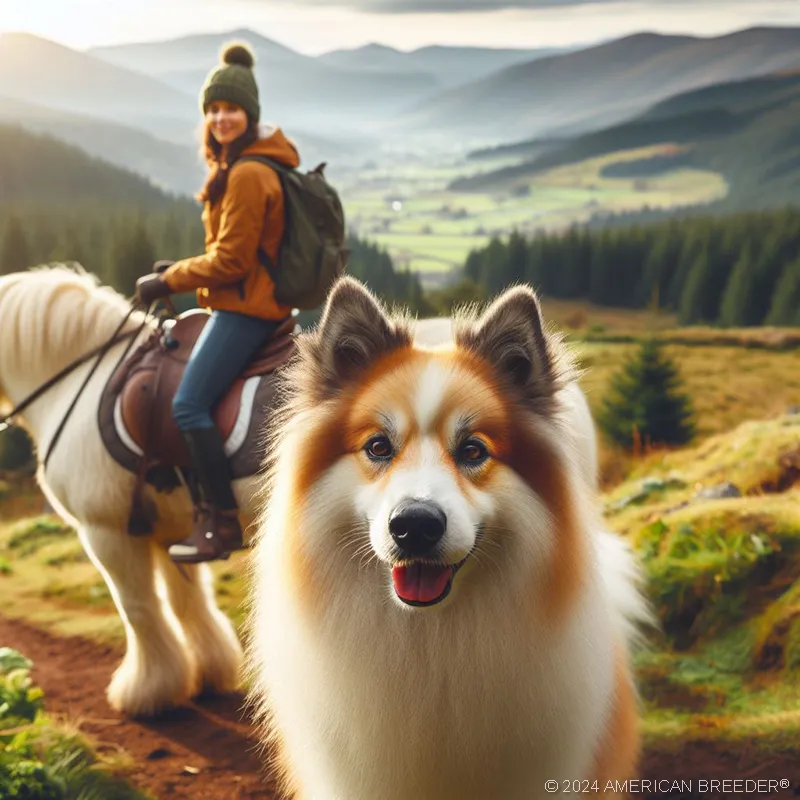 Origin and Development:
Origin and Development:
The Icelandic Sheepdog's roots can be traced back to the ninth century when the Vikings brought their canine companions to Iceland. Over the centuries, these dogs adapted to the harsh Icelandic climate and terrain, developing unique traits that set them apart from other breeds. They were invaluable to the local farmers, herding and protecting livestock, and even serving as loyal watchdogs for their families.
Historical Significance and Cultural Relevance:
In Icelandic folklore, the Icelandic Sheepdog is considered a symbol of good luck and protection. They were often featured in myths and legends, believed to have a strong connection to the hidden folk, or "Huldufólk," mythical creatures deeply rooted in Icelandic culture. The breed's role in daily farm life and its place in the hearts of the locals have made it an essential part of Icelandic heritage.
Purpose and Original Use:
The Icelandic Sheepdog's original purpose was herding and protecting sheep. Their natural herding instincts, intelligence, and agility made them indispensable on farms, helping shepherds manage their flocks in challenging terrains and adverse weather conditions. Today, while they may not be herding sheep in urban settings, their herding instincts remain intact, making them excellent companions for families with active lifestyles.
Kennel Clubs that Register This Breed:
The Icelandic Sheepdog is recognized by various kennel clubs worldwide, including the American Kennel Club (AKC), The Kennel Club (UK), Canadian Kennel Club (CKC), Australian National Kennel Council (ANKC), Fédération Cynologique Internationale (FCI), and the Japan Kennel Club (JKC). These prestigious organizations acknowledge the breed's unique qualities and contribution to the world of canine companionship.
Appearance
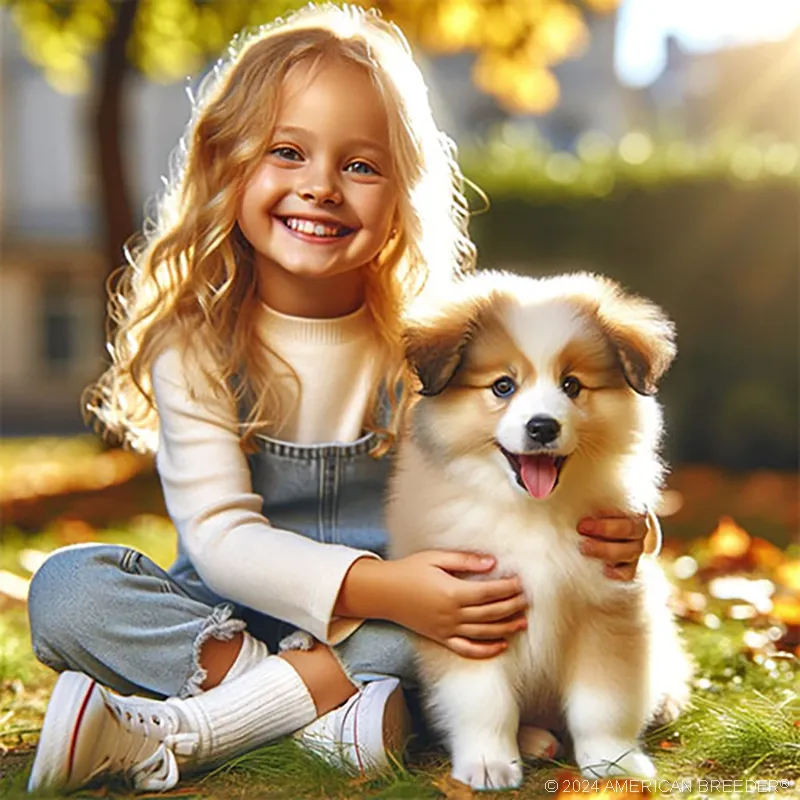 Size, Weight, and Activity Level:
Size, Weight, and Activity Level:
The Icelandic Sheepdog is a medium-sized breed, with males standing around 16 to 18 inches tall at the shoulder, and females slightly smaller at 16 inches. Their weight ranges from 20 to 30 pounds, depending on gender and individual build. Don't be fooled by their size, though; they are a bundle of energy and enthusiasm, always ready for adventure.
Physical Appearance and Coat Type:
The Icelandic Sheepdog's appearance is as captivating as the Icelandic landscapes. They have a well-proportioned body with a wedge-shaped head and a pair of alert, almond-shaped eyes that radiate intelligence. Their thick, waterproof double coat is essential for braving the elements in their homeland. The outer coat is longer and coarse, while the inner coat is soft and dense, providing insulation against the cold. These coats come in various colors, including shades of tan, red, and chocolate, often with white markings.
Distinctive Features and Markings:
One of the most charming aspects of Icelandic Sheepdogs is their distinctive curled tail, which often rests against their back when at ease. Their fox-like face, with pointy ears and expressive eyes, adds to their adorable appeal. While white markings are common, some Icelandic Sheepdogs may have striking facial masks, making each individual dog unique in its appearance.
Average Litter Size:
When this delightful breed welcomes new additions to the family, they usually have litters ranging from four to six puppies. Raising these little bundles of joy with love and care is a heartwarming experience for any dog owner.
Temperament and Personality
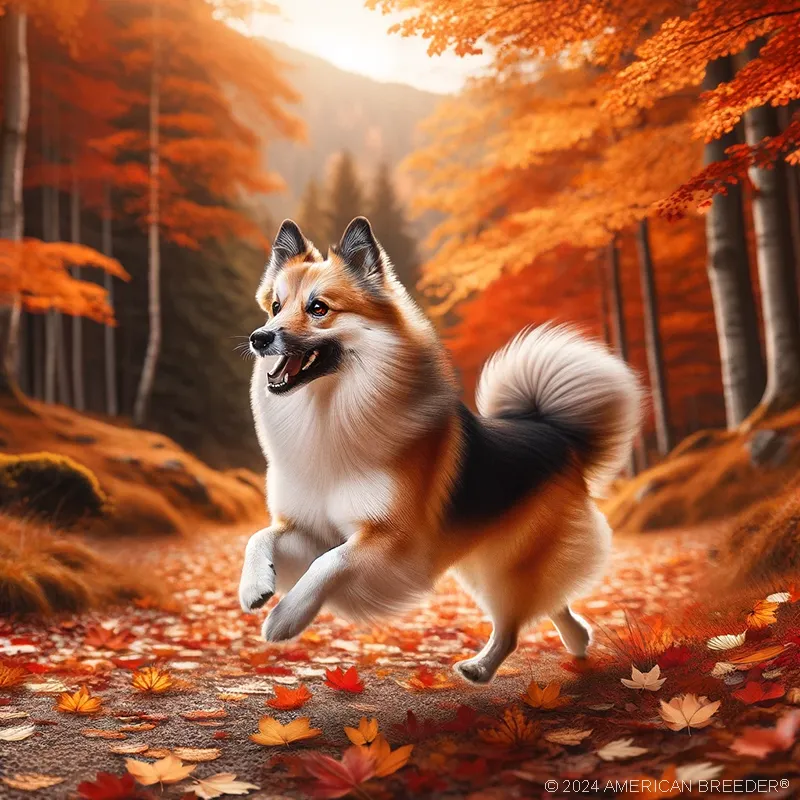 Typical Temperament Traits and Behavior Tendencies:
Typical Temperament Traits and Behavior Tendencies:
The Icelandic Sheepdog's temperament is a perfect blend of intelligence, playfulness, and affection. They are renowned for their friendly and outgoing nature, making them a joy to be around. With their strong herding instincts, they might sometimes try to "herd" their human family members, gently nudging them to keep them together. Their nurturing and protective instincts also make them wonderful companions for families with children.
Energy Levels and Activity Requirements:
Be prepared for action-packed days with an Icelandic Sheepdog! These energetic dogs thrive on physical and mental stimulation. Daily walks, playtime, and interactive games are essential to keep them happy and healthy. Their love for the outdoors means they are always up for hiking, running, and exploring new places with you.
Compatibility with Different Lifestyles and Family Dynamics:
The Icelandic Sheepdog's adaptable nature allows it to fit well into various lifestyles. Active families who love outdoor activities will find an ideal companion in this breed. Their friendly and sociable nature also makes them great for households with children, as they love being part of a pack and enjoy the playful energy of kids.
Common Behavior Issues:
While Icelandic Sheepdogs are generally well-behaved and easygoing, like any breed, they may develop certain behavior issues if not properly trained and socialized. These may include excessive barking, resource guarding, and separation anxiety. Early training, positive reinforcement, and consistent socialization will help ensure a well-rounded and well-mannered companion.
Trainability and Intelligence
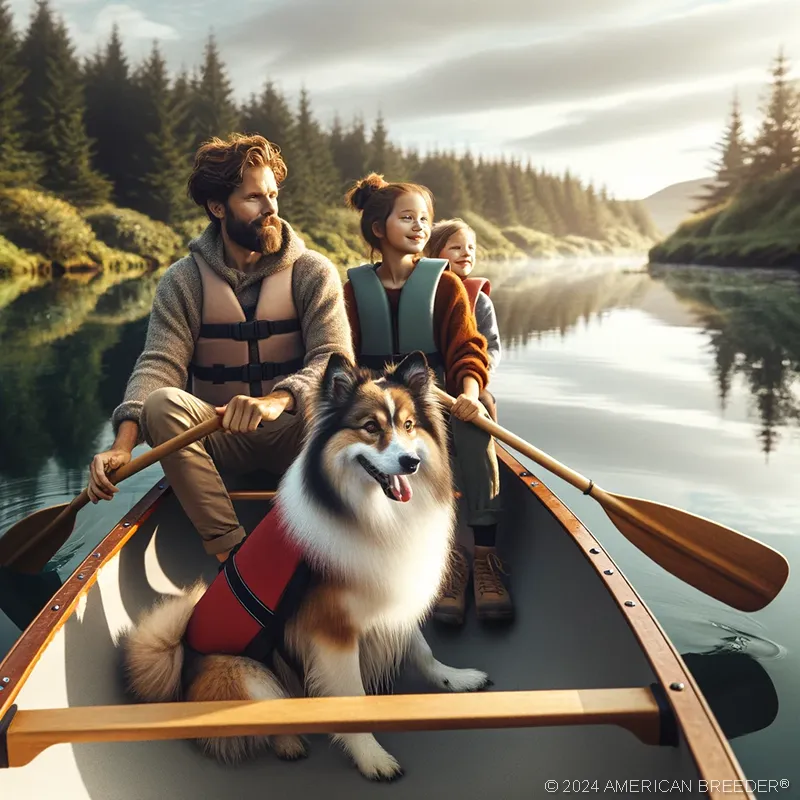 Trainability Level and Ease of Learning:
Trainability Level and Ease of Learning:
With their sharp minds and eagerness to please, Icelandic Sheepdogs are highly trainable. They excel in obedience training and quickly pick up new commands. However, like any dog, they respond best to positive reinforcement and reward-based training methods. Be patient and consistent in your training approach, and you'll be amazed at how fast they learn!
Recommended Training Approaches and Techniques:
For Icelandic Sheepdogs, positive reinforcement techniques work wonders. Reward them with treats, praise, and affection when they exhibit desired behaviors. They respond well to training sessions that are engaging, varied, and full of fun challenges. Incorporating games and play into the training process will keep them motivated and eager to learn.
Best Suited Training or Skills for This Breed:
The Icelandic Sheepdog's intelligence and agility make them well-suited for various training activities. Consider enrolling them in agility training classes, where they can navigate through tunnels, weave through poles, and conquer obstacles with finesse. Their natural herding instincts also make them fantastic candidates for sheepdog trials, where they can showcase their ability to move and control livestock.
Practical Considerations
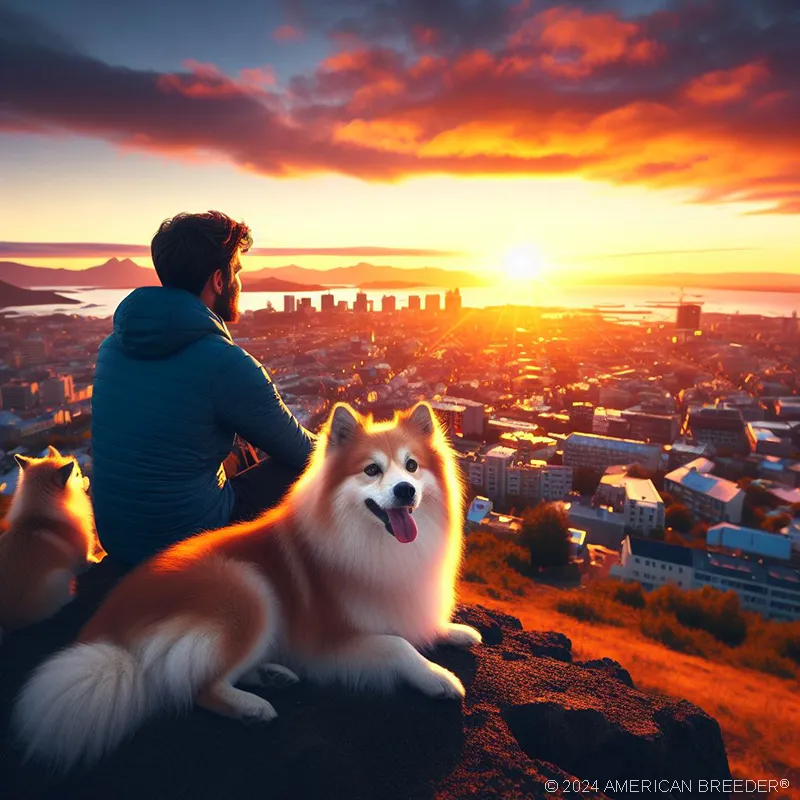 Size of Sleeping Quarters Depending on Size:
Size of Sleeping Quarters Depending on Size:
While Icelandic Sheepdogs are medium-sized dogs, they can comfortably adapt to various sleeping arrangements. Whether it's a cozy dog bed by the fireplace or a dedicated corner in your bedroom, they will appreciate a soft and comfortable spot to rest after a day of play.
Typical Annual Veterinary Cost:
As responsible pet owners, it's essential to plan for your furry friend's healthcare needs. On average, the annual veterinary cost for an Icelandic Sheepdog can range from $400 to $800. This includes regular check-ups, vaccinations, flea and tick prevention, and potential emergency expenses. Investing in regular veterinary care will help ensure your canine companion's long-term well-being.
Type of Grooming and Annual Cost:
With their thick double coat, Icelandic Sheepdogs do require regular grooming to keep their fur in top shape. Plan for a visit to a professional groomer at least every six to eight weeks to maintain their coat's health and manage shedding. The annual grooming cost can vary depending on your location, but it typically ranges from $400 to $600.
Energy Level and Daily Exercise Needs:
The Icelandic Sheepdog's energy level is as boundless as the breathtaking landscapes of its homeland. They need at least 60 to 90 minutes of exercise daily to keep them physically and mentally stimulated. Long walks, interactive play sessions, and off-leash running in a safe area are excellent ways to meet their exercise needs.
Level of Playfulness and Intelligence:
When it comes to playfulness, Icelandic Sheepdogs are in a league of their own! Their playful antics and love for games will keep you entertained for hours. Coupled with their intelligence, they enjoy interactive toys and puzzles that challenge their minds and keep them engaged.
Affection Level and Desired Attention:
These affectionate companions thrive on human interaction and love being a part of the family's activities. They'll happily snuggle up with you on the couch, join you for a game of fetch, or even accompany you on errands. Icelandic Sheepdogs are social butterflies that crave attention and will reward you with endless love in return.
Friendliness Toward Strangers:
With their friendly and outgoing nature, Icelandic Sheepdogs are generally warm and welcoming to strangers. While they might alert you to unfamiliar visitors, they are not typically aggressive and may even greet newcomers with a wagging tail and a friendly demeanor.
Health and Care
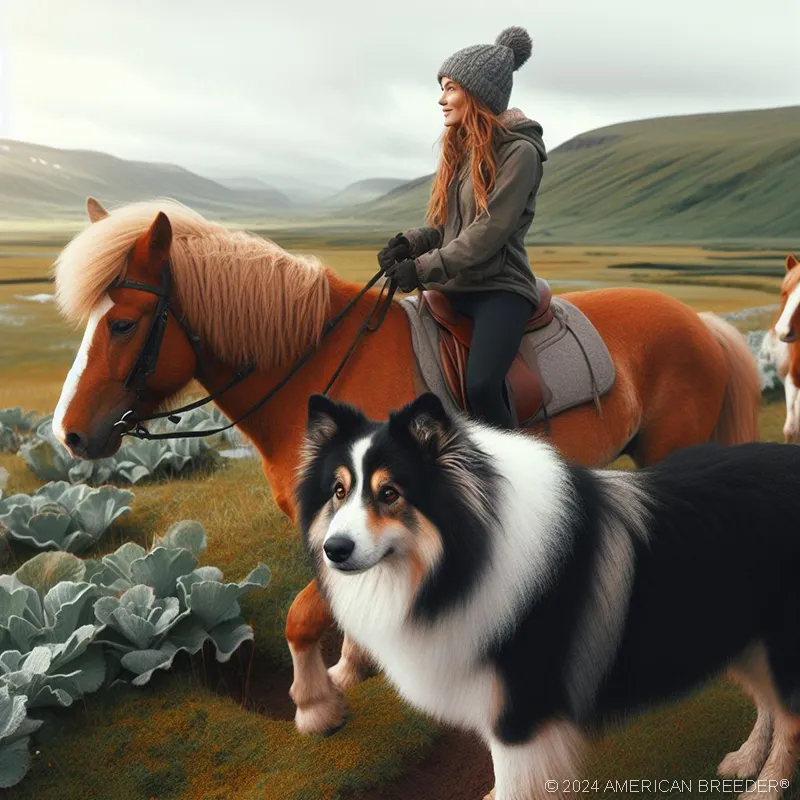 Common Health Issues or Predispositions:
Common Health Issues or Predispositions:
Like all breeds, Icelandic Sheepdogs may be prone to certain health conditions. These may include hip dysplasia, which affects the hip joints, and progressive retinal atrophy (PRA), a hereditary eye disorder that can lead to vision loss. Responsible breeding practices can help reduce the risk of genetic health issues, so ensure you choose a reputable breeder.
Allergies and Specific Dietary Considerations:
Some Icelandic Sheepdogs may develop food allergies or sensitivities, so it's essential to choose a high-quality dog food that meets their nutritional needs. If your dog shows signs of allergies, such as itching, redness, or digestive upset, consult with your veterinarian to determine the best dietary plan.
Lifespan and Longevity Expectations:
On average, Icelandic Sheepdogs have a lifespan of around 12 to 14 years. Providing them with a balanced diet, regular exercise, and routine veterinary care will contribute to their overall health and potentially extend their lifespan.
Grooming Requirements Based on Coat Type and Size:
As a breed with a double coat, Icelandic Sheepdogs shed moderately throughout the year, with heavier shedding occurring during seasonal changes. Regular brushing will help remove loose fur and prevent matting. Additionally, pay extra attention to grooming during shedding seasons to keep their coat healthy and reduce the amount of fur around the house.
Exercise Needs and Recommendations:
As active dogs with herding instincts, Icelandic Sheepdogs need both physical and mental stimulation. Daily exercise should include long walks, interactive play sessions, and opportunities for off-leash running in secure areas. Engaging them in activities that challenge their minds, such as obedience training or dog sports, will keep their intelligent minds engaged.
Nutrition and Feeding Guidelines:
Feeding an Icelandic Sheepdog a balanced and nutritious diet is essential for their overall well-being. Choose a high-quality dog food that meets their specific age, size, and activity level requirements. Always follow the feeding guidelines provided by the dog food manufacturer and adjust the portion size based on your dog's individual needs.
Socialization and Compatibility
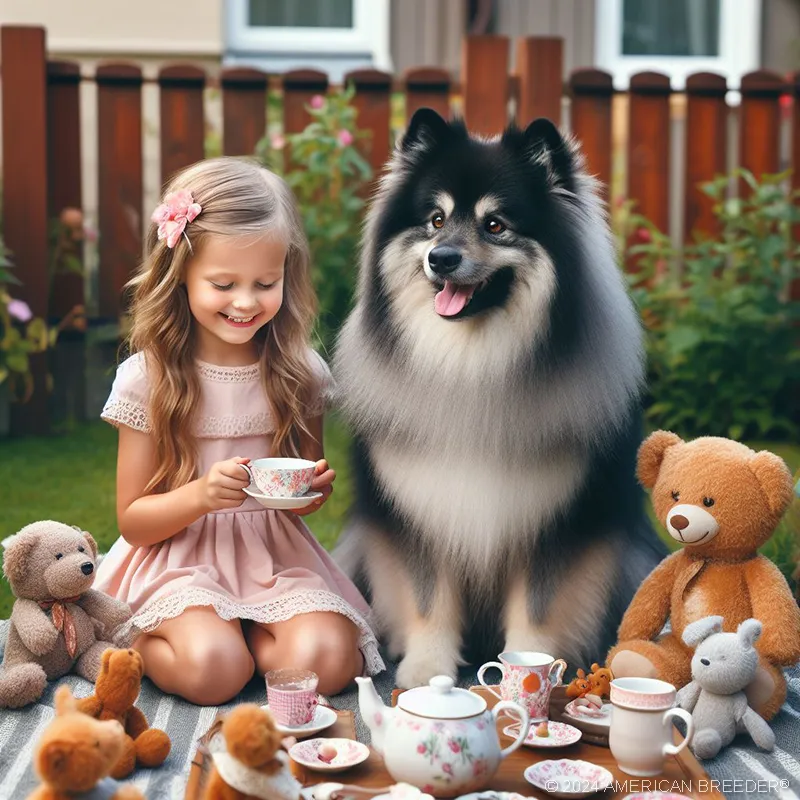 Interaction with Children, Other Pets, and Strangers:
Interaction with Children, Other Pets, and Strangers:
One of the Icelandic Sheepdog's endearing traits is their gentle and friendly nature towards children and other pets. They are patient and affectionate, making them excellent playmates for kids. Proper socialization from an early age will ensure they develop into confident and well-behaved companions around people and animals alike.
Socialization Needs and Tips:
Socialization is a crucial aspect of raising a well-adjusted Icelandic Sheepdog. Introduce them to various people, places, and situations, so they become comfortable and confident in different environments. Expose them to different sounds, sights, and experiences during their early months, which will help them grow into balanced and adaptable dogs.
Precautions or Considerations for Multi-Dog Households:
Icelandic Sheepdogs are generally amiable with other dogs, but proper introductions are essential, especially if you're adding a new canine member to your household. Allow them to interact in neutral territory, supervise their interactions, and provide positive reinforcement for appropriate behavior.
Level of Ease When It Comes to Training This Breed:
The Icelandic Sheepdog's intelligence and eagerness to please make them highly trainable. They thrive on positive reinforcement and enjoy learning new commands and tricks. Consistency, patience, and rewarding good behavior will ensure a smooth and successful training experience.
Living Arrangements and Environment
Suitability for Different Living Arrangements:
The Icelandic Sheepdog is adaptable to various living arrangements, making it well-suited for both urban and rural settings. While they can thrive in an apartment with sufficient exercise, they will truly flourish in a home with access to a secure yard or nearby outdoor spaces to explore.
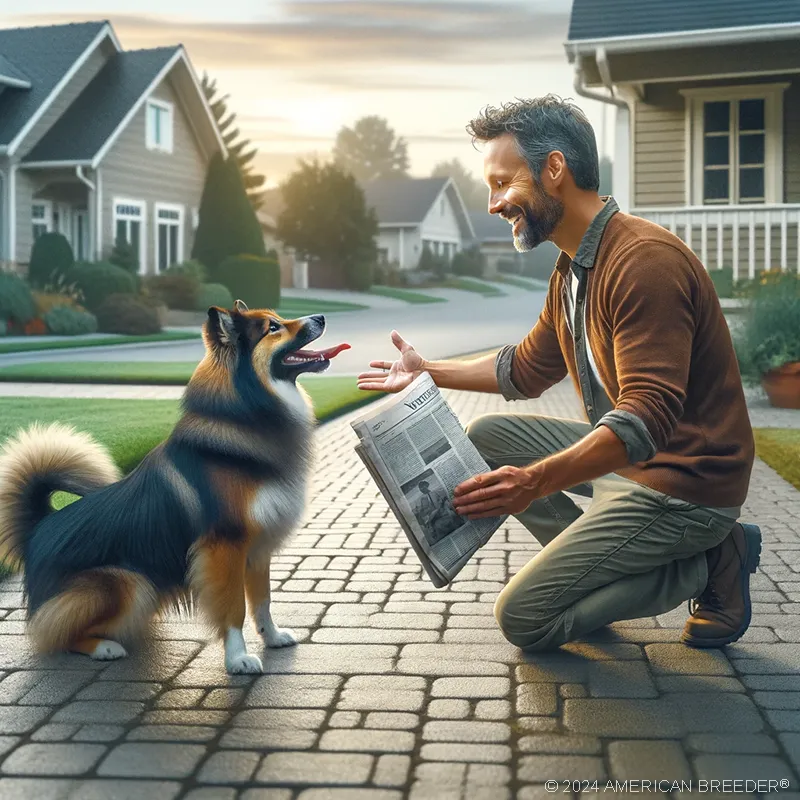 Space Requirements and Exercise Options:
Space Requirements and Exercise Options:
As energetic dogs, Icelandic Sheepdogs need enough space to move around and play. A home with a secure yard will give them the freedom to run and explore. Additionally, living close to parks or open spaces where they can enjoy off-leash activities will be a dream come true for this breed.
Climate Considerations and Adaptability:
Originating from Iceland, where the weather can be harsh and unpredictable, Icelandic Sheepdogs are naturally adapted to colder climates. However, they can also adapt to moderate temperatures with proper precautions, such as providing shade and access to water during hot weather.
How Big of a Yard Should a Person Have with This Type of Dog?
While the Icelandic Sheepdog can adapt to various living spaces, a yard that offers ample room for them to stretch their legs and play will be greatly appreciated. The size of the yard doesn't need to be massive, but enough space for them to run and explore will contribute to their overall well-being and happiness.
Training and Obedience
Basic Obedience Training and Commands:
Start your Icelandic Sheepdog's training journey with basic obedience commands such as sit, stay, come, and down. Positive reinforcement techniques, using treats and praise, will motivate them to learn and follow these commands. Consistency is key, and short, daily training sessions will yield the best results.
Advanced Training or Specialized Activities Suited for the Breed:
Once your Icelandic Sheepdog has mastered the basics, you can delve into more advanced training and specialized activities that cater to their herding instincts and intelligence. Try agility training, where they can navigate through obstacles with grace and speed. Sheepdog trials or herding classes will tap into their natural herding abilities, providing them with a mentally stimulating and rewarding experience.
Behavioral Challenges or Specific Training Considerations:
While Icelandic Sheepdogs are generally well-mannered, like any breed, they may encounter behavioral challenges. Separation anxiety is common, as they form strong bonds with their human family. Gradual desensitization and providing interactive toys or puzzles when you're away can help ease this anxiety. Early socialization is essential to prevent shyness or excessive timidity in unfamiliar situations. Positive reinforcement training can also address barking or resource guarding behavior.
Financial Planning
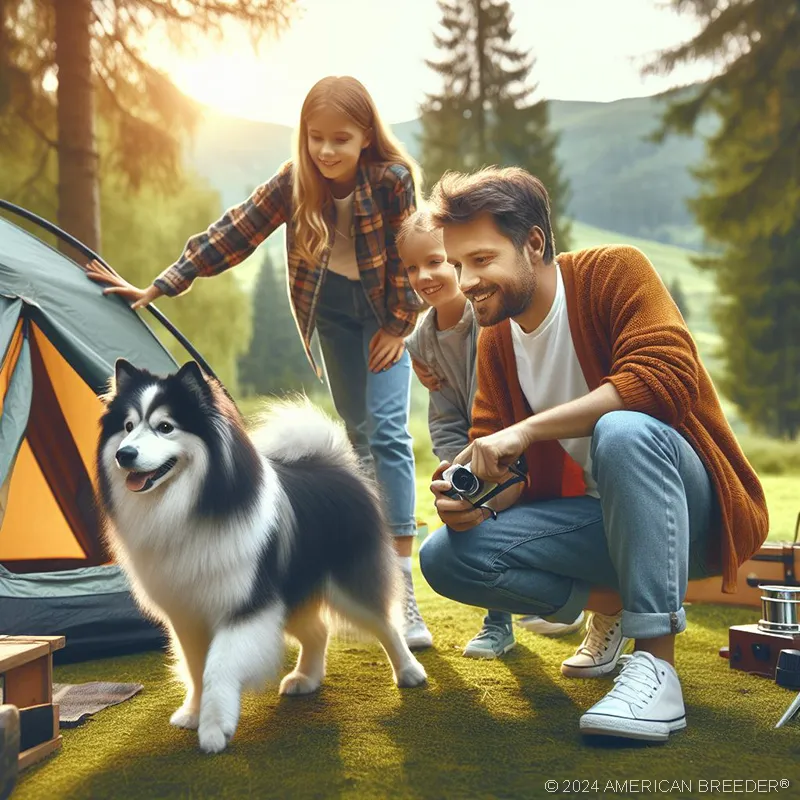 Typical Price Range for Purchasing This Dog Breed from a Reputable Breeder:
Typical Price Range for Purchasing This Dog Breed from a Reputable Breeder:
When purchasing an Icelandic Sheepdog from a reputable breeder, you can expect to pay anywhere from $1,500 to $3,000, depending on factors such as the breeder's location, the puppy's lineage, and the breeder's reputation. Remember, investing in a well-bred puppy from a responsible breeder ensures a healthier and well-adjusted companion.
Initial Costs:
The initial costs of bringing home an Icelandic Sheepdog include adoption fees or the purchase price from the breeder, which varies as mentioned earlier. Other initial expenses include vaccinations, spaying/neutering, and microchipping, which can range from $200 to $500 depending on your location and the specific services required.
Ongoing Expenses:
Beyond the initial costs, you'll need to budget for the ongoing care of your Icelandic Sheepdog. This includes food, grooming, veterinary care, training, toys, and supplies. On average, monthly expenses can range from $100 to $200, depending on the quality of food, grooming needs, and any unforeseen veterinary costs.
Considerations for Pet Insurance or Budgeting for Unexpected Medical Costs:
Consider investing in pet insurance to provide financial protection in case of unexpected medical expenses. While it might add to your monthly expenses, it can save you from large veterinary bills during emergencies. Alternatively, setting aside a portion of your monthly budget specifically for pet-related expenses will help you be prepared for any unforeseen medical costs.
Legal Responsibilities and Regulations
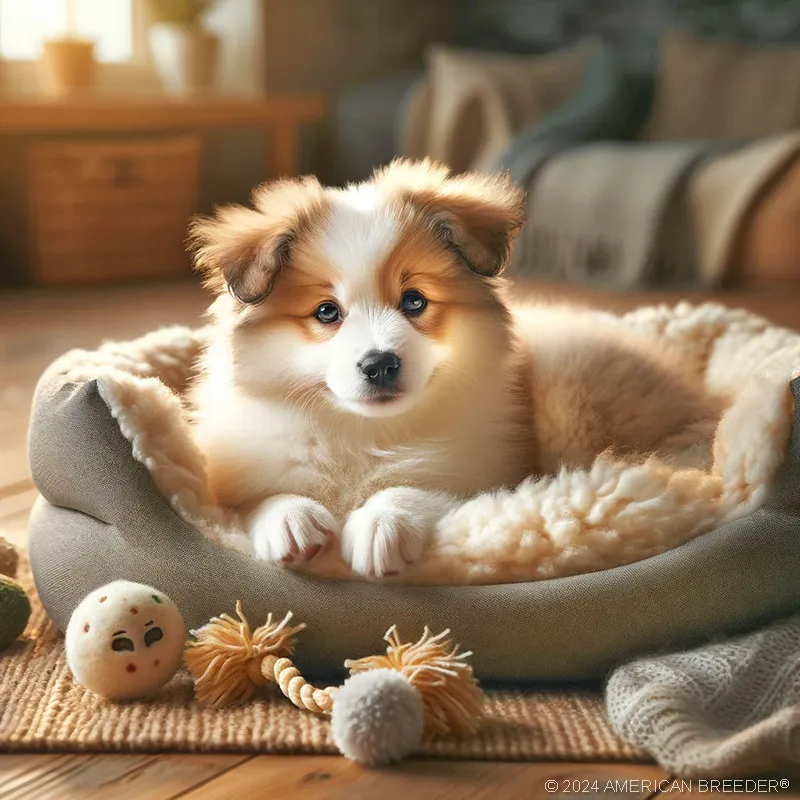 Licensing Requirements and Local Regulations for Dog Ownership:
Licensing Requirements and Local Regulations for Dog Ownership:
Before bringing home an Icelandic Sheepdog, familiarize yourself with your local licensing requirements and regulations for dog ownership. This includes registering your dog with the appropriate authorities, adhering to leash laws, and keeping them up-to-date on vaccinations. Responsible dog ownership ensures the safety and well-being of both your canine companion and the community.
Overall Summary
Get ready for a lifetime of joy and adventure with the Icelandic Sheepdog! With their Nordic charm and playful personality, they'll fill your days with love and laughter. This breed's strong herding instincts and intelligence make them a delight to train and an excellent companion for families who love an active lifestyle. Remember to invest time and effort in their socialization and training, and you'll be rewarded with a loyal, loving, and fun-loving furry friend.
Conclusion
In conclusion, the Icelandic Sheepdog is a captivating canine wonder that brings a touch of Nordic magic to your life. From their friendly nature to their boundless energy, they embody the spirit of adventure and companionship. As you welcome an Icelandic Sheepdog into your home, remember that responsible ownership, regular veterinary care, proper training, and a whole lot of love will ensure they flourish as cherished members of your family. Embrace the journey with this charming breed, and you'll embark on a lifelong adventure filled with joy, laughter, and unforgettable moments. Happy tails and happy trails with your Icelandic Sheepdog!
Icelandic Sheepdog Quick Reference Guide
Breed Background: Origin: Iceland | Breed Purpose: Herding and Companionship | AKC Class: Herding | Year Recognized by AKC: 2010
 Appearance: Size: Small to Medium | Weight: 20-30 pounds | Coat Type: Double coat, thick and waterproof | Colors & Patterns: Red, tan, black, or chocolate with white markings | Distinctive Features: Bushy tail, pointed ears, and expressive face
Appearance: Size: Small to Medium | Weight: 20-30 pounds | Coat Type: Double coat, thick and waterproof | Colors & Patterns: Red, tan, black, or chocolate with white markings | Distinctive Features: Bushy tail, pointed ears, and expressive face
Temperament: Energy Level: 4/5 | Friendliness to Pets: 4/5 | Friendliness to Strangers: 3/5 | Trainability: 3/5 | Playfulness: 5/5 | Frequent Barker: 2/5 | Chase Instincts: 4/5 | Sense of Smell: 3/5 | Drive to Hunt: 2/5
Health & Care: Health Issues: Hip Dysplasia, Eye Problems | Lifespan: 12-15 years | Grooming Difficulty: Moderate | Exercise Needs: Moderate to High
Socialization: Interaction with Children: Good, affectionate | Interaction with Pets: Generally gets along | Interaction with Strangers: Cautious but friendly | Ease of Training: Moderately easy
Suitable Living Arrangements: Apartment: Yes (with enough exercise) | House: Preferable | Rural Area: Yes | Yard Size Requirements: Medium to Large
Training & Obedience: Trainability: 3/5 | Intelligence: 4/5 | Obedience: 4/5 | Problem-Solving: 3/5 | Easily Stimulated: 4/5 | Focus Level: 3/5 | Easily Distracted: 2/5
Financial Planning: Typical Price Range: $1000 - $2500 | Initial Expenses: Vaccinations, Spaying/Neutering | Ongoing Annual Expenses: Food, Vet Check-ups
Breeding: Reproductive Maturity: 6-12 months | Litter Frequency: Once a year | Litter Size: 4-8 puppies | Stud Cost: $500 - $1500 | Breeding Challenges: Small gene pool, limited breeding options
Did You Enjoy this Article? Share it and Help Us Spread the Word!
If you found this article helpful, we'd appreciate it if you could share it with your friends or link to it from your website, blog, or group! You can also use the convenient social share tabs on the left side of the screen to instantly share this page to your social media feed. For more ways to support and promote the American Breeder Community, visit our Share & Promote Together page for social media posts and memes you can copy and share. Your support means the world to us!
Disclaimer: The information provided in this article is for general informational purposes only and does not constitute legal, medical, financial, or professional advice. While we strive for accuracy, we make no representations or warranties regarding the completeness, accuracy, reliability, or suitability of the information. Please consult with a professional before making decisions based on the content provided. American Breeder Inc. assumes no responsibility for any errors or omissions or for the results obtained from the use of this information.
